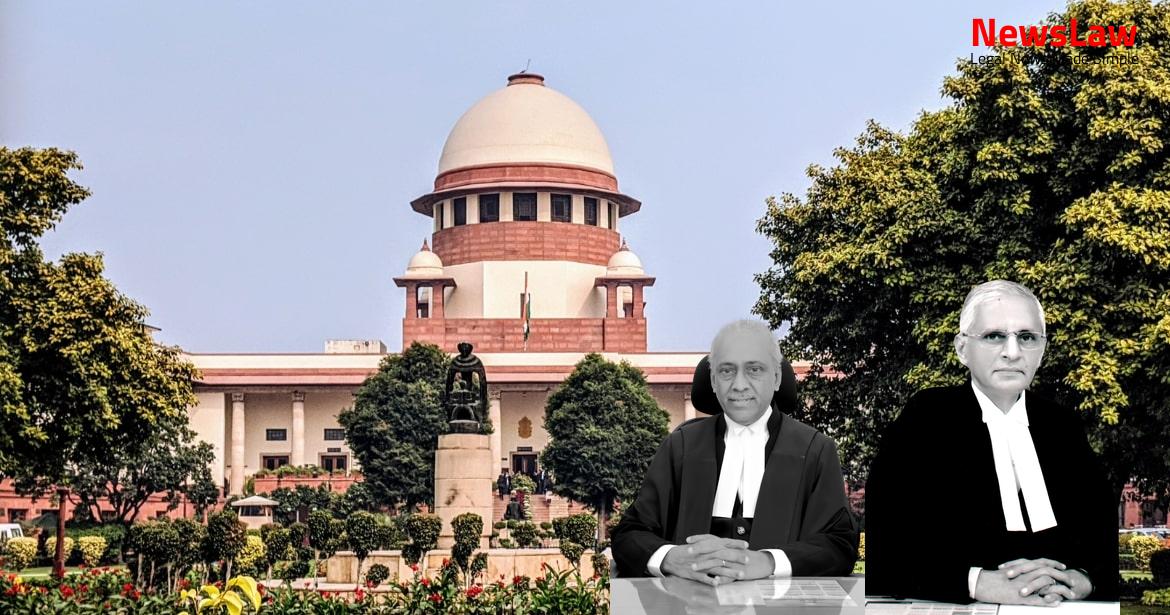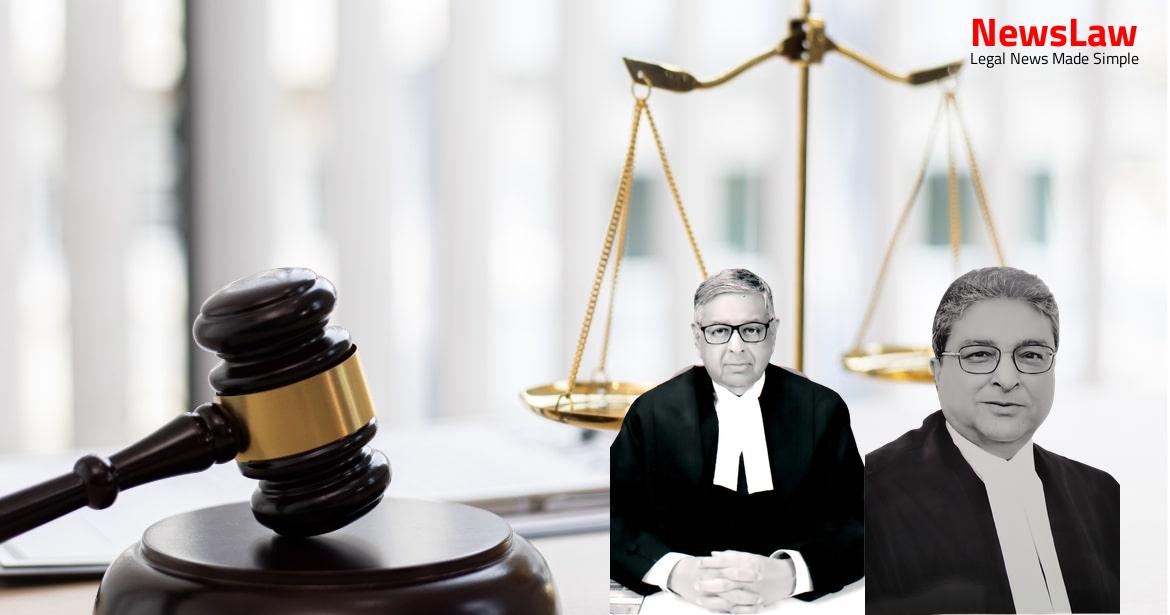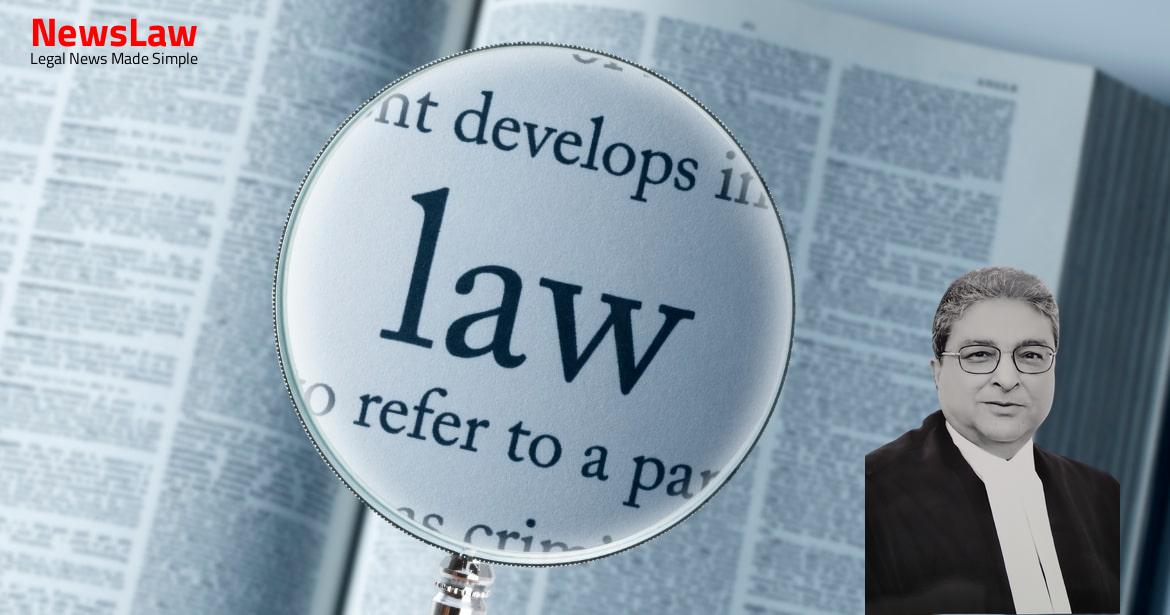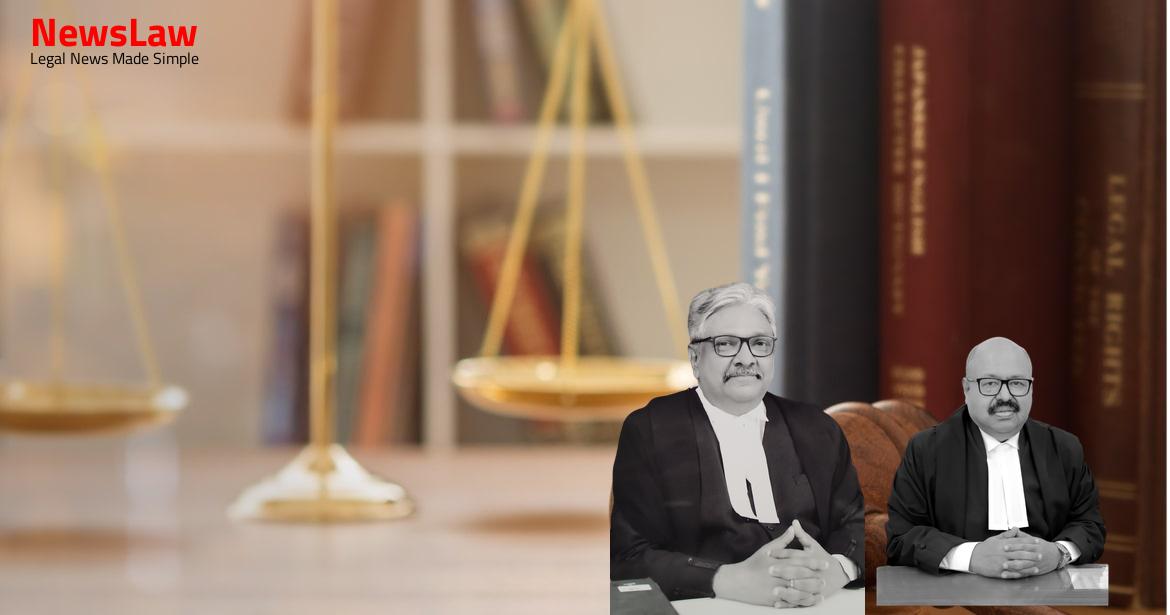Explore a compelling legal analysis by the Appellate Tribunal on the timelines involved in company appeals. The court’s breakdown of statutory provisions showcases the significance of meeting prescribed periods in legal proceedings. Stay tuned for a deep dive into the intricacies of this crucial aspect of law.
Facts
- Appellants received certified copy of the NCLT order on 19.12.2019.
- Application for certified copy was made on 21.11.2019.
- Statutory appeal filed before NCLAT on 20.07.2020.
- Appeal filed with application for condonation of delay.
- Appellants claimed to hold 24.89% of shares in Upper Assam Plywood Products Private Limited.
- Appeals made against NCLAT’s dismissal of condonation of delay application and appeal.
- The Appellate Tribunal dismissed the application for condonation of delay on 04.08.2020.
- The Tribunal stated that it has no power to condone the delay beyond 45 days.
Also Read: Jurisdictional Analysis in Transfer Petition
Arguments
- The contentions raised by the learned counsel for the appellants are two-fold
- First contention is that the Appellate Tribunal erred in computing the period of limitation from the date of the NCLT order contrary to Section 421(3) of the Companies Act, 2013
- Second contention is that the Appellate Tribunal failed to consider the lockdown and the order by the Court extending the period of limitation due to COVID-19
- Section 420(3) mandates NCLT to send a copy of every order to all parties concerned
- Rule 50 of NCLT Rules, 2016 requires Registry to send certified copy of the final order to parties free of cost
- Rule 50 also allows for certified copies with cost as per schedule of fees in other cases
- Section 421(1) provides for appeal to the Appellate Tribunal against an NCLT order
Also Read: Legal Analysis of Alleged Emission Cheating Scandal
Analysis
- Section 421(3) prescribes a period of 45 days for filing an appeal from orders of the Tribunal.
- The Appellate Tribunal has the discretion to entertain an appeal after the initial 45 days, within a further period not exceeding 45 days, if satisfied with the appellant’s reason for delay.
- Section 10 of the General Clauses Act allows for actions to be considered done in due time if the court or office is closed on the last day of the prescribed period.
- The principle of Section 10(1) is also reflected in Section 4 of the Limitation Act, 1963.
- The term ‘prescribed period’ refers to the period of limitation in Sections of the Limitation Act, 1963.
- Any period beyond the prescribed period, where the Court has discretion to allow proceedings, is not considered as part of the prescribed period.
- The case of Assam Urban Water Supply and Sewerage Board v. Subash Projects and Marketing Limited clarifies the interpretation of ‘prescribed period’.
- The crucial words in Section 4 of the 1963 Act are ‘prescribed period,’ which refers to the period of limitation set out in the Act.
- Section 2(j) of the 1963 Act defines ‘period of limitation’ and ‘prescribed period’ in relation to suits, appeals, and applications.
- The Court has taken suo motu cognizance of the challenges faced by litigants due to the Covid-19 pandemic and the consequent difficulties in meeting the period of limitation for filing legal proceedings.
- The order issued by the Court extended the period of limitation but did not alter the discretion granted by the statute to condone delays beyond the prescribed period.
- The Latin maxim ‘Vigilantibus Non Dormientibus Jura Subveniunt’ underscores the principle that the law assists those who are vigilant in protecting their rights.
- The order is binding on all Courts/Tribunals and authorities under Articles 142 and 141 of the Constitution of India.
- The appellants cannot seek refuge under the Court order as it was meant to aid diligent litigants affected by the pandemic-related restrictions.
- The period of 30 days mentioned in proviso after sub-section (3) of Section 34 of the 1996 Act is not the prescribed period for making the application to set aside the arbitral award.
- The 30-day extension beyond three months under the proviso of sub-section (3) of Section 34 is not a period of limitation or a prescribed period.
- Section 4 of the 1963 Act is not applicable since the 30-day period is not a period of limitation.
- Appellants cannot claim the benefit of the order passed by the court on 23.03.2020 for extending the period for condoning delay.
- Waiting for a certified copy after 27 days from the pronouncement of the order does not impact their position under Section 421(3).
- Despite the delay in applying for a certified copy, they are not held against for waiting till 21.11.2019 to make the copy application.
- From 19.12.2019, when the certified copy was received by the counsel, the limitation period starts running.
- If appellants had chosen to wait for the free copy as per Section 420(3) instead of filing a copy application, they would be justified in considering Section 421(3) for limitation date.
- Once the certified copy was received, the limitation period cannot be stopped from running.
Also Read: Authority of University Syndicate in Affiliation Matters
Decision
- Appellants failed to file an appeal within the prescribed period of 45 days starting from 02.02.2020.
- Appellants sought to rely on a court order dated 23.03.2020 to excuse their delay in filing the appeal.
- Prescribed period for setting aside an arbitral award is three months.
- Appellate Tribunal could condone delay up to a period of 45 days.
- Appellants filed the appeal on 20.07.2020, missing the deadline of 18.03.2020.
- Appeals are liable to be dismissed based on the failure to meet the prescribed timelines.
Case Title: SAGUFA AHMED Vs. UPPER ASSAM PLYWOOD PRODUCTS PVT. LTD (2020 INSC 555)
Case Number: C.A. No.-003007-003008 / 2020



